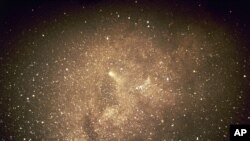While the universe is likely filled with habitable planets, new research suggests any life on these bodies would likely become extinct rapidly.
Writing in the journal Astrobiology, researchers from The Australian National University (ANU) say life on a fledgling planet would likely “die out due to runaway heating or cooling.”
"The universe is probably filled with habitable planets, so many scientists think it should be teeming with aliens," said Aditya Chopra from the ANU Research School of Earth Sciences and lead author on the paper. "Early life is fragile, so we believe it rarely evolves quickly enough to survive."
The main reason, says Chopra, is the lack of stability.
"Most early planetary environments are unstable,” he said. “To produce a habitable planet, life forms need to regulate greenhouse gases such as water and carbon dioxide to keep surface temperatures stable."
Examples of this are right next door. Venus and Mars could have been habitable at one point, but Venus became a “hothouse,” while Mars is a relative “icebox.”
The paper’s co-author, Charley Lineweaver from the ANU Planetary Science Institute, says that any basic life on Mars or Venus could have failed to help stabilize the environment.
"Life on Earth probably played a leading role in stabilizing the planet's climate," he said.
Chopra echoed his sentiments.
"The mystery of why we haven't yet found signs of aliens may have less to do with the likelihood of the origin of life or intelligence and have more to do with the rarity of the rapid emergence of biological regulation of feedback cycles on planetary surfaces," he said.
The research also helps explain Fermi’s Paradox, which states that despite the high odds of habitable planets, we have yet to find any sign of extraterrestrial life.
Researchers are calling the early extinction of life the Gaian Bottleneck.
"One intriguing prediction of the Gaian Bottleneck model is that the vast majority of fossils in the universe will be from extinct microbial life, not from multicellular species such as dinosaurs or humanoids that take billions of years to evolve," said Lineweaver.
Report: Any Extraterrestrial Life Likely Extinct
- By VOA News





